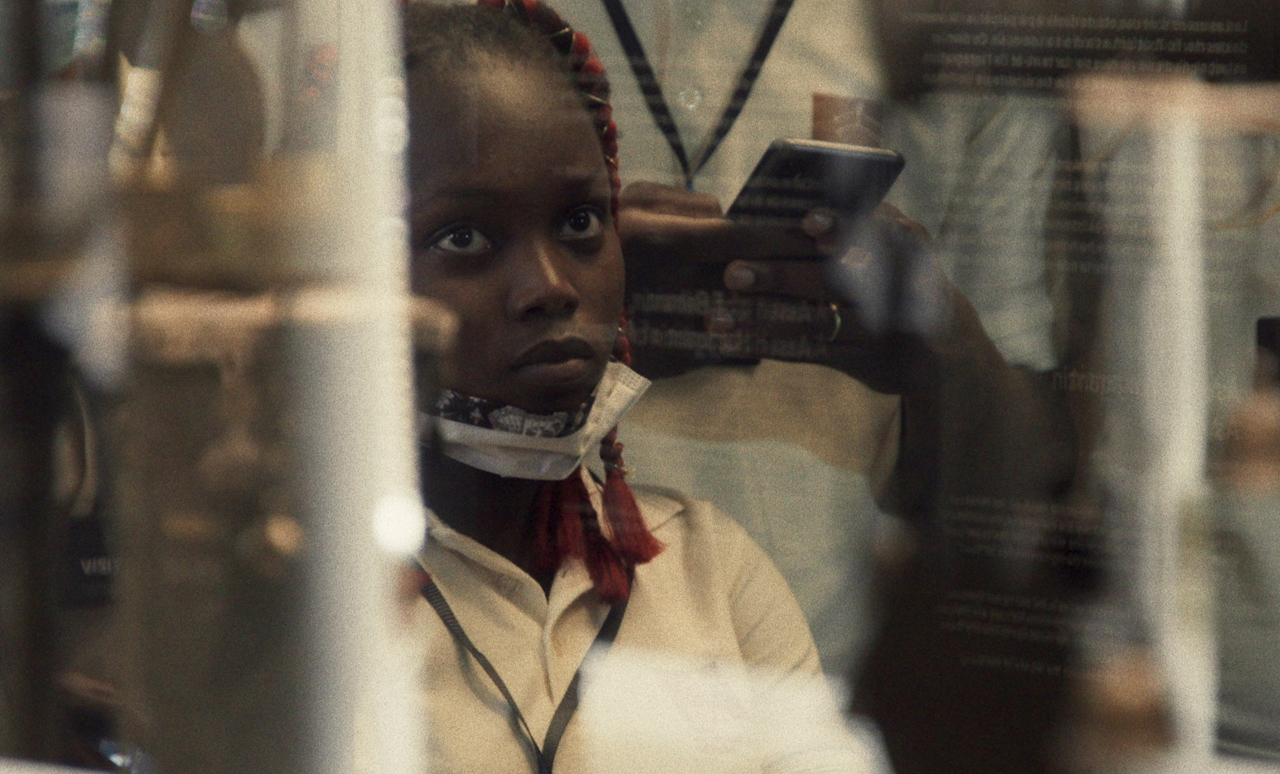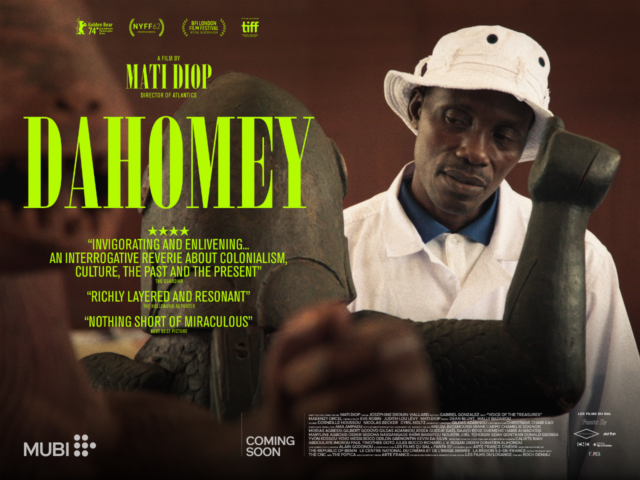Dahomey

This year, for the second time in a row, Berlinale’s Golden Bear was awarded to a title in documentary form, even as Dahomey’s particular approach to its subject verges on the experimental.
In 2021, a collection of 26 artefacts from the former kingdom of Dahomey are returned to what is now the Republic of Benin. In their new/old home, the arrival sparks a heated debate on this gesture of goodwill from the French, when their history of oppression and plundering goes far beyond these 26 royal treasures.
French-Senegalese director Mati Diop treats the treasures as an entity, letting it speak to its 130 years of captivity and voice concerns of not being recognised in its country of origin – or perhaps worse, not recognising anything. The distortion effect to give the voice an otherworldly quality is feeble. However, the decision allows for the audience to distance themselves from their own, preconceived positions on the debate of restitution.
Still in Paris, after witnessing customary wrapping and packing, the rolling camera is placed inside a wooden chest, along with one of the statues. Once this is closed and boarded up, a black screen depicts the overseas journey. In Benin, local workers carry the goods, while white Europeans instruct them how to handle the crates. Diop lets these images speak for themselves and doesn’t encroach on a narrative.
The heart of the film is a passionate forum discussion among the younger generation regarding cultural heritage, in which camera and editing ensure each of the panellists’ voices is given equal weight. Everybody speaks to their truth and as such there is no wrong opinion, just a gathering of eloquent contributions to a complex matter.
Through this sensitive handling, Dahomey’s conversation transcends the topic of restitution and provides important input on the grander theme of post-colonialism.
Selina Sondermann
Dahomey is released in select cinemas on 25th October 2024.
Watch the trailer for Dahomey here:


















Facebook
Twitter
Instagram
YouTube
RSS